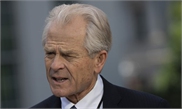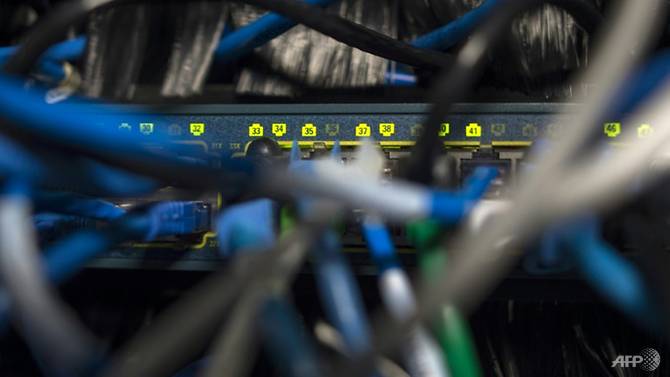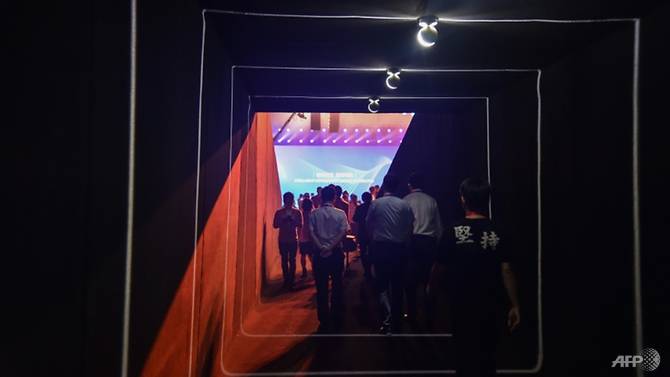https://youtu.be/RmAr9SW5yQw
The development of China's chip industry
 |
| A view of Alibaba's AI chip Hanguang 800 Photo: Courtesy of Alibaba |
China makes chip breakthroughs in 2019
China has made up its mind to become self-sufficient in chip technology. Amid a boiling trade war with the US that disrupts the global supply chain, China's chip industry is witnessing a sweeping change, with investment plowing in apace and breakthroughs being made in high-end chips that will significantly reduce reliance on imports.
In the latest move, China's government-funded "starlight chip project" announced on Monday that it plans to invest 10 billion yuan ($1.43 billion) in the next decade on chip technology research, standard-setting study, application development and large-scale industrialization.
Launched in 1999, the project has applied for more than 3,000 patents and formed several chip technological systems including digital media, intelligent security and artificial intelligence.
The project is a vivid example of how investment is shaping China's semiconductor industry this year, in particular after Washington's brutal crackdown on Chinese tech companies like Huawei and ZTE that could potentially cut off key US component supplies.
In October, China set up a second national semiconductor fund of 204.2 billion yuan in a bid to nurture the domestic chip industry, a 47-percent increase of the scale of investment compared with the first fund of 138.7 billion yuan, according to media reports.
"Chinese industry insiders and authorities are giving the biggest-ever incentives to the homegrown chip industry. We all feel a sense of urgency to wean ourselves off foreign technology, spurred by a spiraling trade war," a manager of a Beijing-based chip start-up who spoke on condition of anonymity told the Global Times on Monday.
The whole industrial chain has been shifting its attitude on chips made by Chinese suppliers, according to the manager.
"In the past, downstream vendors tended to prefer foreign chips over homegrown ones. Now, they gravitate toward ours and are willing to help us in accommodating, testing and even in improving functions," he explained.
The industry-wide effort has helped to fuel a boom in the design of advanced computer and smartphone chips. It has also led to a rapid expansion of the market share of homegrown memory chips.
In September, Huawei's HiSilicon unveiled its latest mobile application processor - the Kirin 990. The chipset series is widely believed to be the world's most powerful mobile system-on-chip, with a performance surpassing its foreign competitors such as Qualcomm.
"Huawei's Kirin series represents a major breakthrough in the chip industry. It shows that Chinese players have the ability to design all ranges of chips and their gap with leading foreign players is closing," Xiang Ligang, an expert in the telecoms industry, told the Global Times on Monday. "We just need some time to forge industrial chain ability."
China is on track to achieve its goal of being able to produce 40 percent of the semiconductors it uses by 2020 and 70 percent by 2025. Chinese firms currently supply more than 15 percent of the semiconductors used in the nation, industry insiders estimated.
The nation is also one step closer to producing about 5 percent of the world's memory chips by the end of 2020 from virtually none in 2018, the Nikkei Asian Review reported, quoting sources close to the matter.
But observers admitted that Chinese firms' chip manufacturing abilities are years behind their rivals due to their late start. China's largest chip manufacturer, SMIC, has reportedly begun mass production of chips using its 14-nanometer FinFET manufacturing technology, while top foreign players such as Samsung and Intel already are in a race to supply 7-nanometer chips to the market.
Newspaper headline: China makes chip breakthroughs in 2019
Source link
RELATED ARTICLES:
- Huawei’s chipset division to become largest chipset designer in Asia: reports
- China's home appliance makers eye high-tech chips
- Alibaba’s semiconductor division unveils first AI chipset
- After trade-war toll of 2019, what will new year bring?
- Netizens celebrate China’s outstanding moments of 2019 with pride
 Huawei to launch first 5G tablet by Q1 2020
Huawei to launch first 5G tablet by Q1 2020
Huawei will launch its 5G-enabled tablet in the first
quarter of 2020, which is expected to beat Samsung to become the world's
first.What's Plan B for US as jobs go to Southeast Asia?
A new trade pattern seems to be taking shape among the US, China, and Vietnam as the trade war has given Chinese businesses strong incentives to transport goods to Vietnam ...Why was Huawei able to stand up to US pressure in 2019?
While attacks from the world's most powerful country turned 2019 into the toughest year ever for Huawei, the Chinese telecom giant is still standing, and doing well.Source: Global Times
 With Huawei cut off, boom year unlikely for US
With Huawei cut off, boom year unlikely for US
White House trade adviser Peter Navarro may sincerely
believe that it will be "a boom year in 2020 for the American economy"
with trade deals done. In fact, he's just ..Overseas cooperation vital for VR sector to succeed
While there has been much discussion of the tech world rivalry and competition between China and the US, the sphere of immersive technologies arguably calls for greater joint collaborative efforts. ..China's GDP to reach 100 trillion yuan in 2019
China's per capita GDP is expected to reach nearly $10,000, Chinese President Xi Jinping said in his annual new year address Tuesday evening. China's GDP is expected to reach 100 trillion yuan ($14.37 trillion) in 2019, Xi said.https://youtu.be/m6Xh1sdicQQ
https://youtu.be/eqHpquWH-Wg
China has emerged as a global leader
https://youtu.be/lRZQ7LQnxhk
Related posts:

https://youtu.be/BEx6oQhx6Sc VideoFromSpace 838K subscribers A Chinese Long March 5 Y3 rocket launched from Wenchang Satellite Launch C...

Tech Titans of China
 AI Superpowers: China, Silicon Valley, and the New World Order; Singapore tries its own path in clash
AI Superpowers: China, Silicon Valley, and the New World Order; Singapore tries its own path in clash
THE NEW YORK TIMES , USA TODAY ,
AND WALL STREET JOURNAL BESTSELLER Dr. Kai-Fu Lee—one of the
world’s most respected expert.
https://youtu.be/QlBp9fz6eVE China launching Cryptocurrency https://youtu.be/q5rRgKYLnjk -- China's central bank on the brink..





























